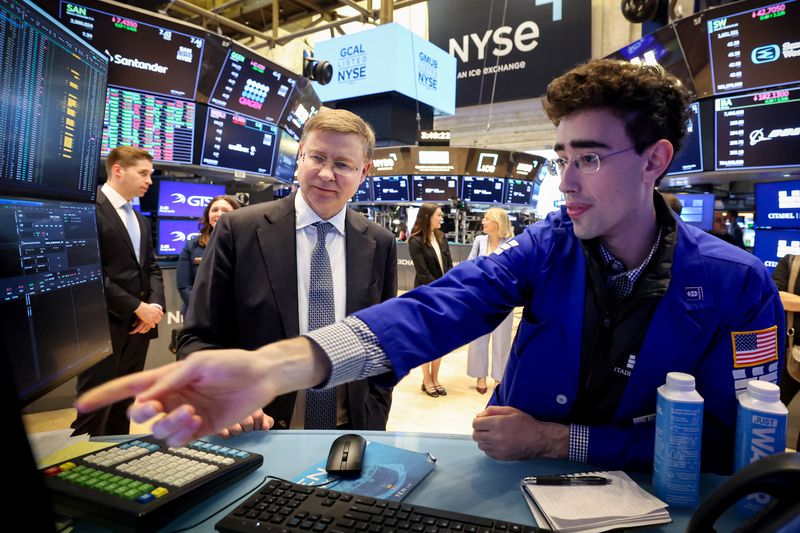By Rae Wee
SINGAPORE (Reuters) – Shares struggled for direction on Wednesday and oil prices slid as relief over a potential easing of global trade tensions was offset by a worsening economic outlook and dour signals from corporates swept up by Donald Trump’s tariffs.
U.S. Treasury yields also languished near multi-week lows as traders raised bets of more rate cuts from the Federal Reserve to support the world’s largest economy.
Despite Trump’s move to soften the blow of his auto tariffs and signs of progress in broader trade negotiations, details remain scant, with Commerce Secretary Howard Lutnick saying he had reached one deal with a foreign power.
Adding to the tariff anxiety, investors were also grappling with deteriorating U.S. data as Trump’s hefty tariffs rippled across businesses and consumers at home.
“We raise the probability of a prolonged economic stagnation in the coming months, meeting the criteria for a recession, to 50%,” said David Kohl, chief economist at Julius Baer.
“The rising probability of economic stagnation in the U.S. is entirely due to the exogenous forces of an erratic and restrictive economic policy with arbitrary tariffs, disruptions to public spending, changing incentives, and an unsustainable fiscal stance.”
Data on Tuesday showed the U.S. trade deficit in goods widened to a record high in March as businesses stockpiled ahead of Trump’s tariffs, suggesting trade was a large drag on economic growth in the first quarter. First quarter GDP data is due later in the day.
U.S. consumer confidence also slumped to a nearly five-year low in April.
The precarious state of the global economic outlook, particularly in the United States, left Wall Street futures struggling to sustain gains made during the cash session overnight.
Nasdaq futures were down 0.6% in Asia, while S&P 500 futures fell 0.4%.
EUROSTOXX 50 futures swung between slight losses and gains, while MSCI’s broadest index of Asia-Pacific shares outside Japan added just 0.1%.
The Nikkei tacked on 0.15%.
The fallout from Trump’s trade war reverberated further through the corporate world as delivery giant UPS said it would cut 20,000 jobs to lower costs, while General Motors pulled its outlook and delayed its investor call, joining a list of companies that have ditched forecasts for 2025 or slashed outlooks.
“You start to see companies… making some statements about low visibility, the unwillingness or inability to sign long-term contracts, to make long-term plans – that’s a very slippery slope,” said Fabiana Fedeli, M&G’s chief investment officer of equities, multi asset and sustainability at a media roundtable on Monday.
Story Continues

